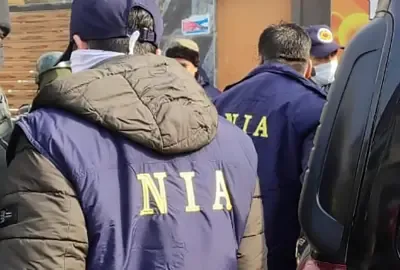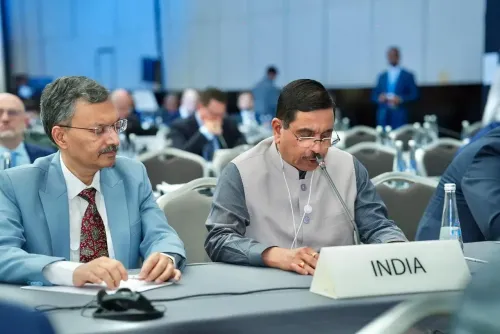What Did the NIA Uncover in the Champaran Fake Currency Case?

Synopsis
Key Takeaways
- The NIA has filed a supplementary chargesheet against four men in a fake currency case.
- The case involves a cross-border syndicate linked to Pakistan and Nepal.
- The accused face charges under the Unlawful Activities Prevention Act.
- The counterfeit currency was allegedly smuggled into India through complex networks.
- The NIA is committed to dismantling transnational criminal organizations.
New Delhi, Aug 12 (NationPress) The National Investigation Agency (NIA) has submitted a supplementary chargesheet against four individuals regarding the 2024 Champaran fake currency seizure case, which has uncovered a cross-border syndicate linked to Pakistan and Nepal.
The chargesheet, presented to the NIA Special Court in Patna, identifies Md. Nazar Saddam, Md. Waris, Md. Zakir Hushain, and Muzaffar Ahmad Wani, also known as Sarfaraz. They are facing charges under pertinent sections of the Unlawful Activities Prevention Act (UAPA).
Previously, the accused had been charged by local authorities in October 2024. The NIA's investigation has revealed that these individuals were involved in a scheme to smuggle high-quality Fake Indian Currency Notes (FICN) from Nepal to India, aimed at destabilizing the nation's financial integrity.
Reportedly, the counterfeit notes were sourced from entities based in Pakistan through intermediaries in Nepal, with payments conducted via cryptocurrency to evade detection. Investigators allege that Nazar Saddam, alongside Waris and Zakir Hushain, played a crucial role in transferring the FICN from Nepal into Indian territory.
Conversely, Wani is accused of financing the operation and providing essential logistics for the distribution and circulation of the counterfeit currency within India.
This case, registered as RC-17/2024/NIA-DLI, originated from the seizure of fake currency valued at Rs. 1.95 lakh in Champaran, Bihar.
The NIA took over the investigation from local police in December 2024 and presented the accused in court in January of this year. The agency has reported that efforts are ongoing to identify additional members and facilitators involved in the network, both domestically and internationally.
This latest chargesheet highlights the NIA's commitment to dismantling transnational criminal networks that threaten national security and economic stability.










